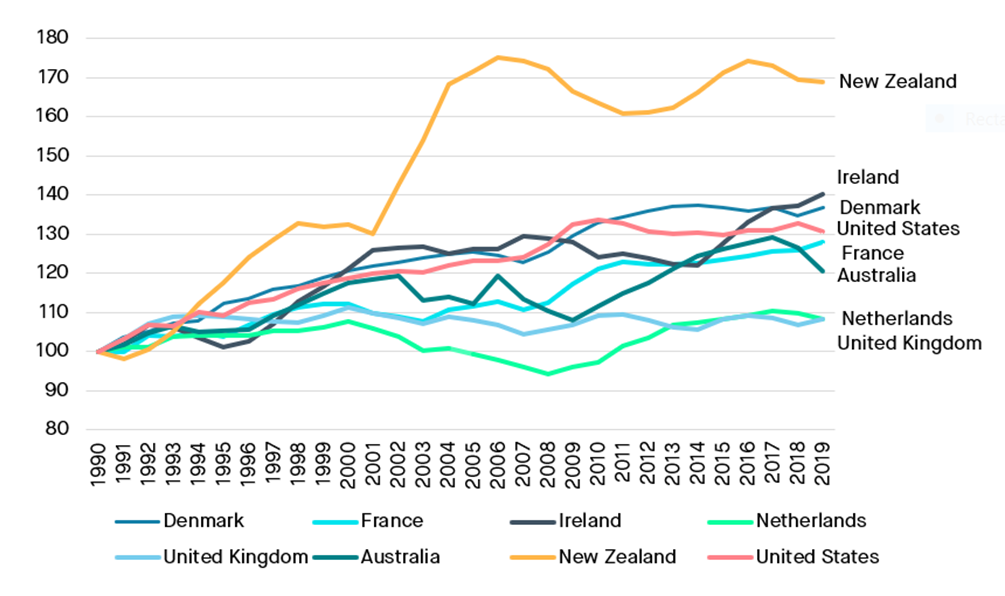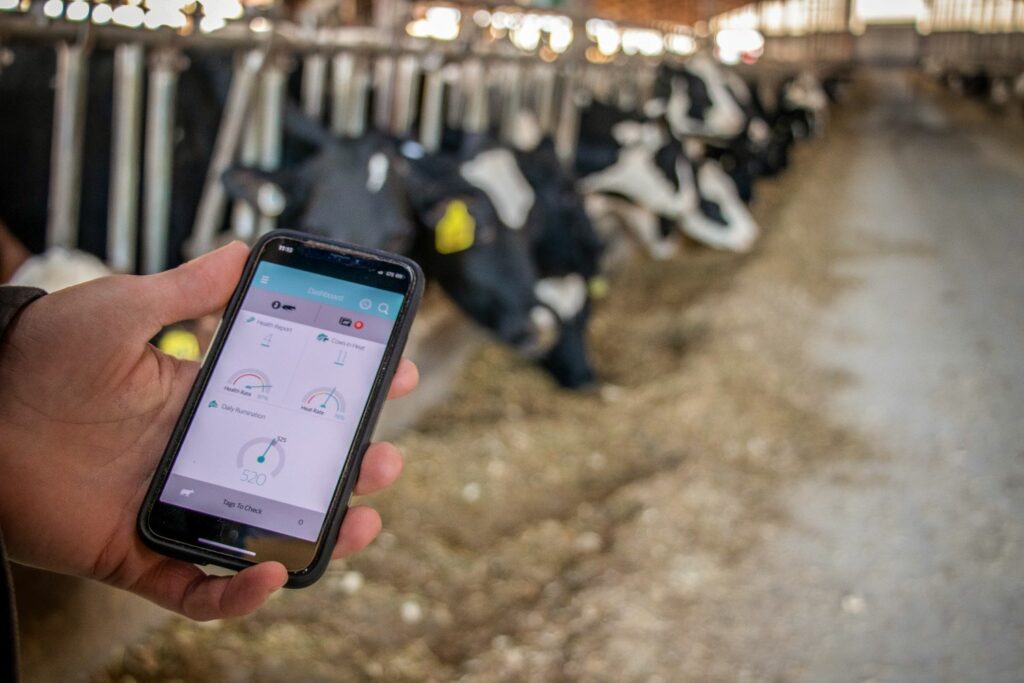Study links farmers’ reluctance to invest in new technology with funding uncertainty
20th October 2022
A recent study published by an independent think tank says farmers are open to adopting new technologies but are reluctant to invest due to a lack of confidence in policy frameworks, funding opportunities, and the future of farming in general.
Precision farming, which involves the use of technology to improve data monitoring and interpretation on farms, has the potential to bring down food costs, boost growth, and improve agricultural productivity as set out in the government’s growth plan.
Yet only 9% of government grants in England are destined for enhancing farm productivity, which the Social Market Foundation (SMF) says is insufficient for promoting large-scale investment in precision technologies. In its latest report, Moovin’ On Up, the think tank marks uncertainty around future funding as the single biggest barrier to farmers modernising their operations.
Innovative farming tools, such as smart weighing systems, electronic ID (EID) tags, monitoring collars and farm management apps could go a long way towards closing the agricultural productivity gap between the UK and other countries.
Using data from the US Department for Agriculture (USDA), the SMF’s study highlighted the sharp contrast between New Zealand and UK agriculture. Namely, farming in New Zealand has increased its productivity by nearly 70% in the last 30 years, while British farming has only shown a 10% productivity growth (see below).

International comparison of total factor farm productivity. Base (100) = three-year average to 1990. (Source: US Department of Agriculture) Image © The Social Market Foundation
SMF director James Kirkup said that, while this is by no means a criticism of the UK agriculture sector, it is an indication that it could do better. Recognising that technological adoption could be a major driver of growth, the think tank carried out research funded by MSD Animal Health UK to identify the main barriers to precision farming uptake in Britain.
Moovin’ On Up: Key findings and recommendations
Published on 18th October, the study outlines the main pressures faced by UK farmers in the current socio-economic climate. Other than the productivity challenge, which is largest in the livestock sector, farmers are also expected to respond to environmental pressures such as improving biodiversity and moving towards net zero targets.
Other concerns relate to food production and security, animal health and welfare, and the cost-of-living crisis in the wake of Russia’s invasion of Ukraine. According to the study’s co-author Aveek Bhattacharya from the SMF, precision livestock farming has the potential to address all of these challenges, alongside improving farm safety and reducing greenhouse gas emissions.
Despite the considerable gains precision technologies could bring to the livestock sector, the report found that current levels of uptake are “patchy at best”. Data from Defra’s Farm Practices Survey featured in the report shows that regular weighing to measure growth rates is highest in pigs and poultry (64%), while the use of estimated breeding values is most common in the dairy sector (69%).
To gain a better understanding of farmers’ attitudes towards precision technologies, the study’s authors conducted in-depth interviews with 10 livestock farmers across the country.
While rather small, the sample incorporated a range of different farming systems, types of pasture and livestock, and geographical locations to ensure the most accurate representation of the industry.
The results of the study indicate that farmers in general are open to new technologies and many are already seeing benefits, although the full potential of precision tools is yet to be grasped in the farming community. As expected, younger generations were the most optimistic about data-driven farming systems boosting productivity and growth.
Moreover, the findings also suggested that farmers are most likely to trust local, “over the fence” advice when it comes to making investment decisions. However, uncertainty about the future of farming is holding many back from spending on technology, with cost being the number one barrier to modernisation.

Aveek Bhattacharya, chief economist, SMF. Image © The Social Market Foundation
Aveek Bhattacharya, SMF chief economist and co-author of the report said: “When it comes to adoption of new, cutting-edge technologies – key to enhancing productivity – farmers are more than willing but the Government needs to meet them halfway with a better-designed subsidy system.
“Better use of technology in farming could help the Government achieve its objective of boosting economic growth, but only if farm subsidies are well-targeted and offer strong incentives to invest in tools that improve farm efficiency.”
Based on available evidence, the study’s authors formulated a number of recommendations to promote the uptake of precision farming technologies. These include:
- Improving funding incentives for farmers to invest in precision technologies
- Facilitating better knowledge exchange “from the R&D lab to the farm gate”
- Creating better data sharing infrastructure
- Using regulation to promote change, such as mandatory EID tagging
- Rejuvenating farm management by providing new entry schemes and promoting farming to younger generations
Mr Bhattacharya is confident that if these objectives are achieved, farming in Britain can be shaken up towards a more efficient and productive future.
Relevance to the industry
During a recent media briefing, Thomas Burston, director of policy research at the Food, Farming and Countryside Commission (FFCC) made some comments on the relevance of the report to the industry.
He emphasised the purpose of farming, other than food production, is to manage risks to food security and tackle nature, climate and health crises. He acknowledged the current research as part of the growing body of evidence that uniting these goals is possible.
Mr Burston also agreed that the return on technological investment has to be calculable and fair for farmers and support from policy frameworks will be required to achieve broader farming outcomes.
Ian Anderson, Allflex managing director from MSD Animal Health UK also welcomed the report’s findings and recommendations. At the briefing, he reiterated the importance of research and collecting data in terms of improving animal health and welfare and reducing the strain on the environment.
“All of those [the report’s outcomes] we welcome, because the farming community are very hard working, they are very skilled, and we want to help them to have a profitable and sustainable future. I think this report takes us along that road,” he added.
Independent livestock sustainability consultant Dr Jude L. Capper, who helped inform the analysis in the report, commented:
“It is absolutely crucial that we move the British livestock industry forwards and encourage farmers to adopt technologies that will improve productivity, business resilience and sustainability.
“This report comes at a pivotal moment for evoking change and is an essential component of the knowledge base needed to back recommendations to all food industry stakeholders.”
The SMF report Moovin’ On Up, sponsored by MSD Animal Health UK, is available to view here.

